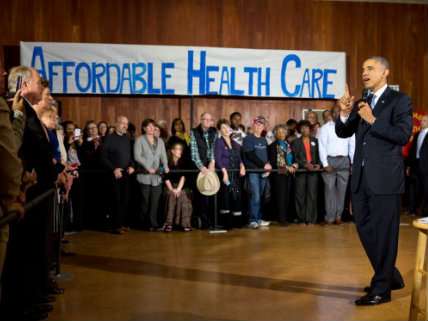What's Going on With Employer-Sponsored Health Insurance?

Earlier this week the Congressional Budget Office (CBO) released its latest estimate of how much the health law would increase insurance coverage. The CBO estimated that, as a result of Obamacare, 12 million people will be insured this year who otherwise would not have been.
The CBO's estimate comes on the heels of a survey by the RAND Corporation, completed on March 28 of this year, which found that health insurance coverage under Obamacare rose by 9.3 million.
At first glance, these might not seem to be wildly incompatible. CBO's figure is an estimate for the full year. RAND's figure comes from a survey that goes most of the way through March. In any case, there's going to be some amount of natural variation.
But RAND's survey finds that the vast majority of the increase came via a spike in employer-sponsored insurance; the findings suggest that, perhaps as a result of the health law's coverage mandate, a large number of people obtained employer coverage who did not previously have it. The CBO, in contrast, actually projects a decrease in employer coverage of 2 million by next year, and a further decrease of 7 million the year after that. It's hard to imagine a plausible, realistic scenario in which these two results are compatible.
Was RAND's unusual finding an artifact of fall open enrollment periods for employer coverage, or even just a fluke result? The study had a rather large margin of error, with the topline insurance figure subject to a 3.5 million over or undercount. There are other reasons to wonder about the survey results: Benefits manager Aon Hewitt found recently that there was very little enrollment growth amongst those eligible for employer health plans in the 2014 coverage year.
It's hard to tell what's actually happening here. RAND's survey results don't match up to what almost anyone expected, but unlike the CBO, which is crunching outside data to make a projection, RAND is relying on their own measurements taken on the ground. If RAND is right, though, then Obamacare's effects will look quite different from what anyone assumed, and the exchanges will be much less of a factor than the law's designers planned. I suspect it will be a while before this is all sorted out.


Show Comments (17)